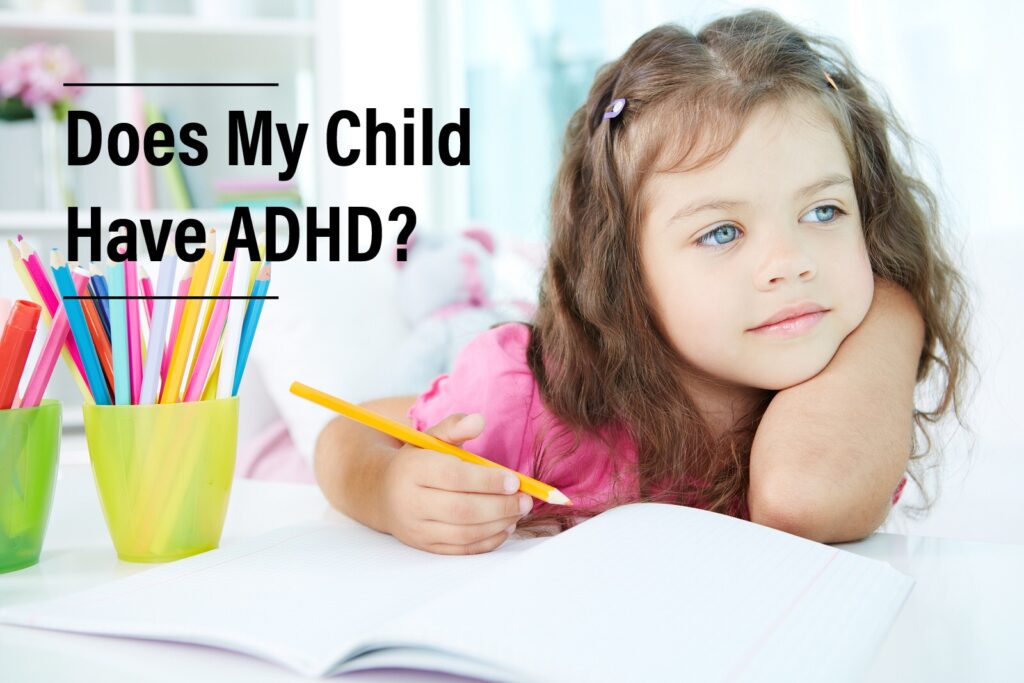
Does My Child Have ADHD? Importance of Early Intervention
September 18, 2024
As a parent, you may notice that your toddler is constantly moving, struggles to sit still, or has trouble focusing on tasks. While these behaviors can be part of normal development, you might wonder: Could my child have ADHD? Attention Deficit Hyperactivity Disorder (ADHD) can be challenging to identify in toddlers, as their natural curiosity and energy often mirror symptoms. This blog will guide you through the signs of ADHD in children and offer insights on when to seek professional evaluation to help ensure your child receives the support they need.
Does my child have ADHD?
Determining whether a toddler has ADHD involves careful observation and evaluation by a healthcare professional. It’s important to remember that some behaviors typical in toddlers, such as high energy levels and difficulty focusing, can also be part of normal development. Here are a few steps you can take if you’re concerned:
- Observe Behavior:
- Attention: Does your toddler struggle focusing on activities, even for short periods?
- Hyperactivity: Are they excessively active or unable to sit still?
- Impulsivity: Do they act without thinking, interrupt others, or have difficulty waiting their turn?
- Assess Developmental Milestones:
- Compare your child’s behaviors to typical developmental milestones for their age. Many toddlers exhibit high energy and short attention spans, which is normal for their stage of development.
- Monitor Duration and Impact:
- For ADHD, symptoms typically persist for at least six months and impact daily functioning significantly. If behaviors seem to be causing problems at home or in other settings (e.g., daycare), it may be worth exploring further.
- Consult a Professional:
- Pediatrician: Start with a discussion with your child’s pediatrician. They can help determine if the behaviors are part of typical development or if further evaluation is needed.
- Child Psychologist or Psychiatrist: If necessary, a specialist can conduct a thorough assessment to evaluate ADHD and other possible conditions.
- Consider Other Factors:
- Sleep issues, stress, or other developmental challenges can sometimes mimic ADHD symptoms. A comprehensive evaluation helps rule out these factors.
What Causes ADHD in Children?
While the exact cause of ADHD is not fully understood, research points to a combination of genetic, environmental, and neurological factors. Here’s a breakdown of some potential causes of ADHD in children:
- Genetics
ADHD often runs in families, suggesting a strong genetic component. If a parent or sibling has ADHD, a child is more likely to develop the condition. Specific genes related to dopamine regulation in the brain have been linked to ADHD symptoms. - Brain Structure and Function
Studies show that children with ADHD may have differences in brain development and activity, particularly in areas responsible for attention, impulse control, and executive functions. Reduced levels of certain neurotransmitters, like dopamine, can also contribute to the disorder. - Premature Birth or Low Birth Weight
Children born prematurely or with low birth weight may have a higher risk of developing ADHD due to developmental complications or a lack of oxygen during birth, which can affect brain growth. - Exposure to Environmental Toxins
Exposure to toxins such as lead or prenatal exposure to alcohol, tobacco, or drugs can increase the risk of ADHD. These substances may interfere with normal brain development, contributing to attention and behavioral issues later in life. - Prenatal and Early Childhood Health Issues
Maternal health during pregnancy plays a role. Factors such as high stress, poor nutrition, or infections during pregnancy have been linked to a higher chance of a child developing ADHD. - Dietary Factors
While not a direct cause, some studies suggest that sugar, artificial food additives, or sensitivities to certain foods may exacerbate ADHD symptoms in children. However, more research is needed in this area.
Understanding these causes can help parents and caregivers take proactive steps to address ADHD early, ensuring the best possible outcomes for their child.
Early Intervention: Why It’s Crucial for ADHD
If ADHD or another condition is diagnosed, early intervention can make a significant difference. Treatment options often include behavioral strategies, parenting support, and, if needed, specialized therapy.
Whether your child is diagnosed with ADHD or not, early intervention plays a vital role in shaping their development. The earlier ADHD in children is identified, the sooner you can provide the support and resources needed to help your child navigate challenges in attention, behavior, and learning. Early intervention allows for the development of personalized strategies that can improve focus, reduce impulsive behaviors, and enhance social skills. These can include behavior therapy, tailored educational approaches, and even parenting strategies that focus on positive reinforcement and structure.
Early intervention also helps prevent potential future difficulties, such as academic struggles or social isolation. Even if your child doesn’t have ADHD, addressing behavioral concerns early on sets the stage for healthy emotional and cognitive growth. By taking proactive steps, you’re not only supporting your child in the present but also giving them the tools they need to thrive in the future.
Conclusion: Trusting Your Instincts and Seeking Support
Determining whether your child has ADHD can be a complex and emotional process. It’s important to trust your instincts as a parent and observe your child’s behavior over time. If you have concerns, don’t hesitate to consult with a healthcare professional who can conduct a thorough evaluation. Early identification and support can make a significant difference in your child’s development and future success. Remember, whether or not your child has ADHD, they can thrive with the right guidance, care, and understanding. By staying informed and proactive, you’re already taking important steps toward helping your child reach their full potential.
Remember, only a qualified professional can diagnose ADHD, and they will use a combination of observations, assessments, and input from various sources to make an informed diagnosis. For more informative blogs and the best preschool education for your kids, you can contact Casa Bambino.


